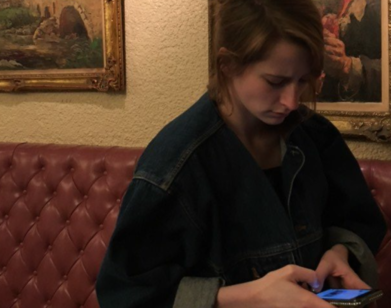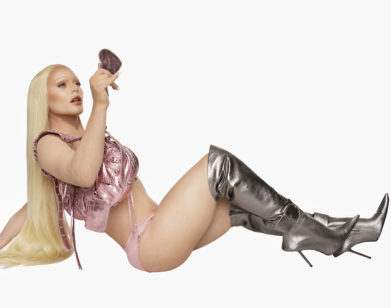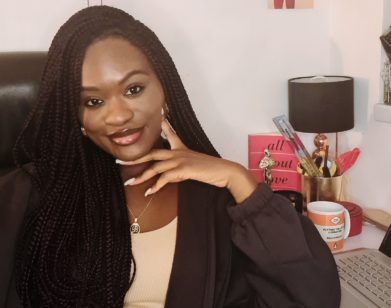Ask a Sane Person: Jack Halberstam Isn’t Here to Comfort You
Jack Halberstam, a radical social thinker whose critiques have transformed our notions of queer theory and representation, has never shied away from necessary battles—from decoding patriarchal masculinity and the stasis of the straight white gaze to offering alternative notions of value in queer life. A professor at Columbia, Halberstam has just finished his latest book, Wild Things, which examines 20th-century queer sexuality through motley forms of “wildness.” If the future can be depended on, Duke University Press will release the book in October.
———
INTERVIEW: Where are you and how long have you been isolating?
JACK HALBERSTAM: I am now in California, in the Bay Area. Before that, my pod and I were in a very cold and empty Provincetown. The off-season vibe was comforting. I have been isolating since March but have been to some socially distanced dinners, done a few hikes, done some socially distanced swimming, and spent a lot of time on the phone or Zoom.
INTERVIEW: What has this pandemic confirmed or reinforced about your view of society?
HALBERSTAM: That the so-called “business model” is wrong for just about everything—it is bad for politics, terrible for universities, poor for social relations. It corrupts any potential for justice and turns all interactions into transactions. We all knew that a system that only cared about profits and capital was ruinous, but with 13% of the population unemployed, millions of people living precariously, hundreds of thousands of people without shelter and with food insecurity, it is surely time for some alternatives to global capitalism.
INTERVIEW: What has this pandemic altered about your view of society?
HALBERSTAM: I am not sure it has changed my view of society so much as confirmed the fact that radical change has to be forced upon many people, even when it is clearly necessary. Also: fear the entitled. Also: the virtual is terribly overrated. Twitter cannot stand in for face-to-face interaction, and when it is the main vector for an exchange of ideas, we are all doomed.
INTERVIEW: What is the worst-case scenario for the future?
HALBERSTAM: That we go back to “normal” and everyone feels confirmed in the very activities and behaviors that created this disaster in the first place.
INTERVIEW: What good can come out of this lockdown? Are there any reasons to hope?
HALBERSTAM: The only good that can come out of the lockdown is that enough people recognize that everything needs to change and then force those changes to happen. Potentially, the ruination that the virus leaves in its wake will force us to demand massive shifts in the way we practice medicine, education, business, and law. And it has already led to loud and effective protests of the police, calls for defunding and abolition and demands for student debt forgiveness and rent reductions. We need to come out of the lockdown fighting—fighting the predatory pharmaco-businesses that lie waiting to capitalize on the vaccine and fighting the resumption of business as usual.
INTERVIEW: What has been your daily routine during this time?
HALBERSTAM: On a good day, I go for a bike ride or a swim. I write something. I speak to someone. I watch a very melodramatic U.K. TV series. I sleep well. On a bad day, I fight with everyone. I despair about the future. I struggle to watch an online event. I feel alone and frustrated.
INTERVIEW: Describe the current state of your hair?
HALBERSTAM: Excellent—a very talented friend cut it recently.
INTERVIEW: On a scale of 1 to 10, what is your level of panic about the current state of the world?
HALBERSTAM: Anyone who does not say 10 and above at this point is mad, bad, or working an angle from which they will profit massively.
INTERVIEW: Do you think there is hope for true racial equality in the United States? What do you think is the first step in that goal?
HALBERSTAM: There is no “first step” but only many steps that should be taken all at once: Reparations for Black people, the defunding of the police and the abolition of prisons, and the complete transformation of current systems of law; the return of land to Native American tribes; the distribution of a living wage; the encouragement of shared households and community parenting. Oh, and how about free tuition and healthcare, and wage adjustments so that we cap bankers’ salaries and raise those for teachers and nurses. Racial equality depends, in the end, upon massive adjustments that dispossess white people of ill-gotten gains and redistribute opportunities, land, and material resources to everyone.
INTERVIEW: Do you think protests are effective tools for changing the system? How does it make a difference in the long term?
HALBERSTAM: I do, but I also think that protests have to be equal parts creative (in the way that early Gay Liberation Front zap actions and ACT UP protests were) and they have to channel a clear threat of violence against the status quo in some way (yes, I said it, violence is necessary—the bankers and lawyers and politicians and landlords are not planning to walk away happily from the systems that benefit them). A peaceful protest that has been cleared in advance by the police tends to be a symbolic gesture. But, as the now startling images of the Black Panthers converging upon Sacramento in 1967 show, the slogan of “by any means necessary” requires not violence but at least the threat of violence. Unfortunately, we live in a world where the state has made violence its own prerogative and has extended that prerogative to armed white mobs, but sees all violence that springs from justified political opposition as “terrorism.” I thought the recent protests were powerful precisely because massive groups of queer, trans people, white and of color, were unpredictable, bristling with potential violence against the police and property, and, ultimately, protesters were not satisfied with a quick march to city hall.
INTERVIEW: How do you personally channel your anger? Do you find anger to be a useful emotion?
HALBERSTAM: I am the original angry queer. Is it useful? No, not at all. Is it necessary? Definitely. I don’t channel anger, I inhabit it.
INTERVIEW: Which young leaders inspire you?
HALBERSTAM: I am not thinking about leaders at present. I see lots of young people cooperating with each other to be effective in arguing for change, in participating in mutual aid, and in leading the way to a different kind of world.
INTERVIEW: What’s the next step after protests in the streets? Where does the righteous rage go?
HALBERSTAM: It does not go anywhere. The rage that people have brought to the streets stays there and is replenished by an endlessly inventive series of mini-protests, sit-ins, refusals, ruptures, and teach-ins. And once they end, the protest moves to nightclubs, to impromptu art shows and gatherings—protest is an endless, restless movement that disorganizes the systems designed to contain it.
INTERVIEW: Do you work best alone or in a group? Can you protest from home?
HALBERSTAM: I like a combination of doing my own thing and yet being in constant conversations with others. I find the shelter-in-place structure of this moment to be deeply frustrating and, even though I have a deeply antisocial side, I mostly love to be part of intellectual life on and off-campus. I don’t look forward to Zoom universities and Zoom talks and Zoom book parties. I want contact. I want to speak to people face to face. I want to be surprised. You cannot protest from home. In a world where home has been defined by heteronormativity on the one hand and private property on the other, home is almost hostile to change.
INTERVIEW: What thinkers have you taken comfort in of late and why?
HALBERSTAM: Ursula K. Le Guin—it’s a good time for everyone to reread The Dispossessed; Saidiya Hartman’s poetics of rebellion in Wayward Lives, Beautiful Experiments; Walter Benjamin—maybe the greatest theorist ever of the coming disaster.
HALBERSTAM: It would not be a song—and it definitely would not be a celebrity collaboration song—but it might be a crisis playlist. Here are a few songs that must be on it: Roberta Flack, “Tryin’ Times”; David Bowie, “Five Years”; The Clash, “Armagideon Time”; Klaus Nomi, “The Cold Song”; Big Thief, “Not”; everything ever sung by Nina Simone; Anohni’s version of “Landslide”; Abbey Lincoln, “Throw it Away.”
INTERVIEW: If 2020 were a song, which song would it be?
INTERVIEW: Where did we go wrong? Like, what was the exact moment?
HALBERSTAM: A question like this implies that the answer is November 2016 when we elected Trump. Probably it was more like 1980 when the Reagan/Thatcher regimes began. But even that is a misreading of the temporality of catastrophe. By the time you are aware of a catastrophe, as the pandemic has made clear, it is too late. “Going wrong” does not start in a moment any more than it suddenly ends (think of Trump’s fantasy that the virus will miraculously disappear!). Catastrophe, on the contrary, unfolds, slowly at first and then with alarming speed. The exact moment that “we” went wrong, then, is irretrievable. A better question is what led to the current crisis: we could say “the industrial revolution,” or the first land enclosures, or the first slave ship and all of those things are right even as none of them led inevitably to our particular constellation of crises, disaster, and collapse. In other words, COVID, like the Anthropocene, did not happen when an animal virus transferred to a human body but when humans began thinking in terms of occupation, civilization, racial hierarchies, management, ownership, bureaucracy, and order.
INTERVIEW: Which (admittedly totally unqualified) celebrity would you trust with the planet’s future?
HALBERSTAM: I wouldn’t. But if you force me to pick one… Pam Grier as Foxy Brown kicking some white patriarchal ass.
INTERVIEW: If you could stop time at one particular moment in your life, which moment would it be?
HALBERSTAM: Any of the moments when I have been swimming in the early morning in clean cold waters—at the Two Step in Hawaii where dolphins used to visit regularly, in the sea pools in Australia at Bronte Beach, in lakes and streams in my childhood. Immersion in water has a way of reminding you of how small you are and how many worlds exist beyond the human.
INTERVIEW: What’s one skill we should all learn while in quarantine?
HALBERSTAM: Gardening for our own food; playing an instrument; cultivating patience. I can do none of these things.
INTERVIEW: What does our future as a nation look like?
HALBERSTAM: As the Sex Pistols sang of England in 1977: “There’s no future
… No future /No future/ No future for you/ No future/ No future/ No future for me.”
INTERVIEW: What prevents you from giving up hope in the human race?
HALBERSTAM: Nothing, really, other than the imaginative and visionary intellectual labor of a new generation of scholars who question everything about the current order of things and are actively bringing new ways of thinking and acting to life.
INTERVIEW: Who should be the next president of the United States?
HALBERSTAM: If we must have a president then let it be Alexandria Ocasio-Cortez. I know that she is still below the age limit of 35, but tell me this: Why should there be a minimum age for the president of 35 but no maximum age of, say, 70? The fact that very, very old white men tend to hold this office tells us everything about why we need a totally new political system. I presume that Biden is being kept in his basement precisely because he is actually too old to manage the crisis we are in. Once we realize the system is broken and that we need to abandon the two-party presidential system altogether, we will not be making poor choices between two elderly buffoons and hoping for the best. Instead, we will be reinventing the meaning of politics altogether.







